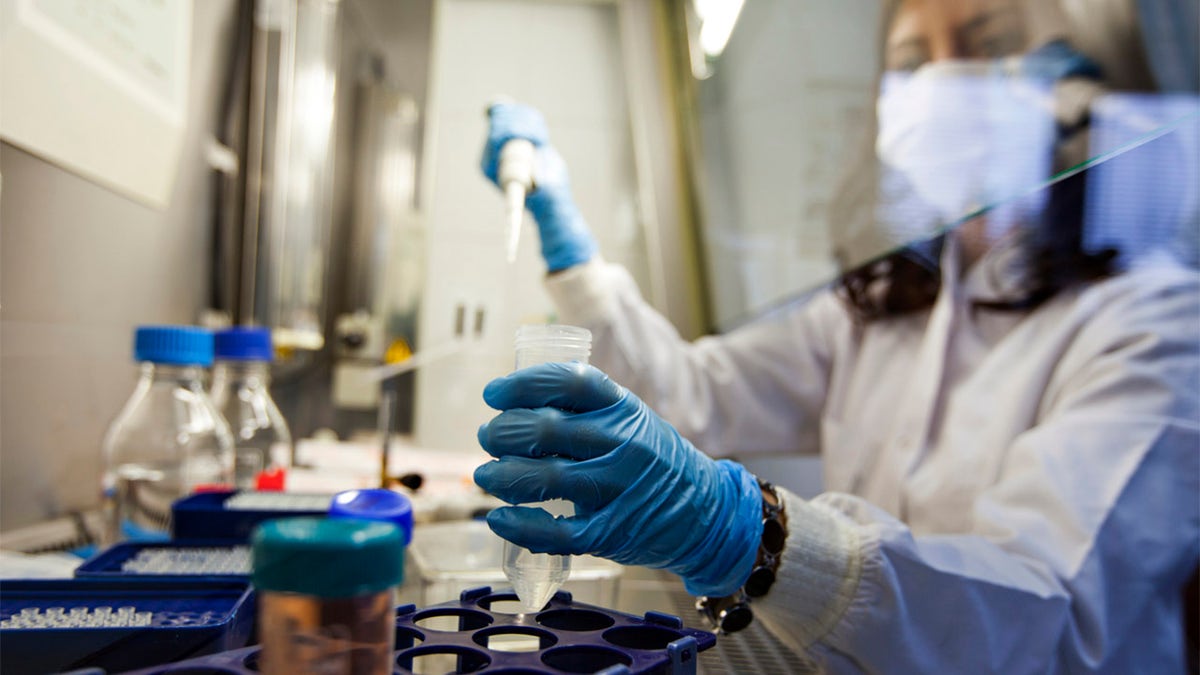Fox News Flash top headlines for June 10
Fox News Flash top headlines are here. Check out what's clicking on Foxnews.com.
The results of a small clinical trial have found that there could be a cure for rectal cancer.
The trial — conducted by Memorial Sloan Kettering Cancer Center in Manhattan — involved at least 12 rectal cancer patients who took a drug called dostarlimab.
That's according to a paper published on Sunday in the New England Journal of Medicine.
The patients took dostarlimab every three weeks for six months and had at least another six months of follow-up treatment, the paper said.
At the end of the follow-up treatment, none of the patients had any evidence of cancer, according to the paper.
Even after up to two years for some patients, the cancer still has not returned.
The American Cancer Society estimates that in 2022, there will be 44,850 new cases of rectal cancer.
Colorectal cancer is the second most common cause of cancer deaths in the U.S., according to the organization.
This year, colorectal cancer is expected to cause 52,580 deaths, the American Cancer Society estimates.

A small clinical trial of the drug dostarlimab was found to completely cure 12 patients of rectal cancer. (iStock)
The patients involved in the clinical trial all had tumors with a specific genetic makeup known as mismatch repair-deficient (MMRd), a press release from Memorial Sloan Kettering indicated.
The release said that between 5% and 10% of rectal cancer patients have MMRd tumors.
ST. JUDE PATIENT DESIGNS MONSTER JAM TOY TRUCK, SURPRISED WITH REAL DEAL: ‘JUST AWESOME’
None of the clinical trial patients required radiation, surgery or chemotherapy, the press release said.
"It’s incredibly rewarding to get these happy tears and happy emails from the patients in this study who finish treatment and realize, ‘Oh my God, I get to keep all my normal body functions that I feared I might lose to radiation or surgery,’" Dr. Andrea Cercek, a Memorial Sloan Kettering oncologist, said in the release.
CLICK HERE TO GET THE FOX NEWS APP
Cercek is one of the co-authors of the paper, which was presented on Sunday at the American Society of Clinical Oncology.
"It’s really exciting," Dr. Luis Diaz, Jr., another Memorial Sloan Kettering oncologist and a co-author of the paper, said in the release.
"Longer follow-up is needed to assess the duration of response."
"I think this is a great step forward for patients."
Though the results are very positive, the paper did say clearly: "Longer follow-up is needed to assess the duration of response."
CLICK HERE TO SIGN UP FOR OUR LIFESTYLE NEWSLETTER
The clinical trial is continuing to enroll patients with MMRd rectal cancer tumors, the Memorial Sloan Kettering press release said.
FOLLOW US ON FACEBOOK FOR MORE FOX LIFESTYLE NEWS
The cancer center is also looking into how dostarlimab might be able to help patients with other kinds of cancer that have MMRd tumors as well, such as stomach, prostate and pancreatic cancer.










































